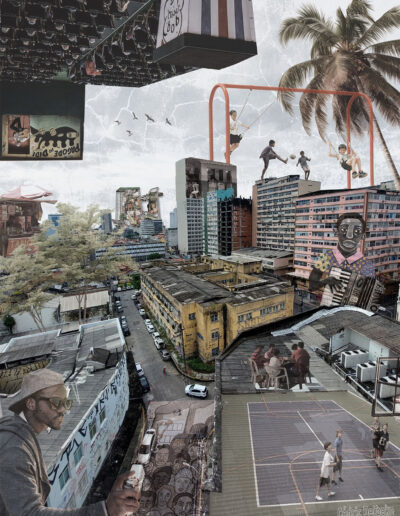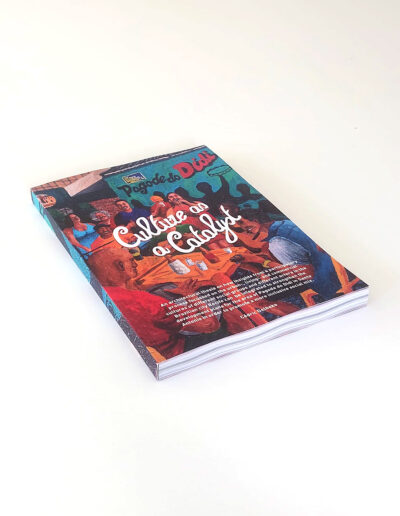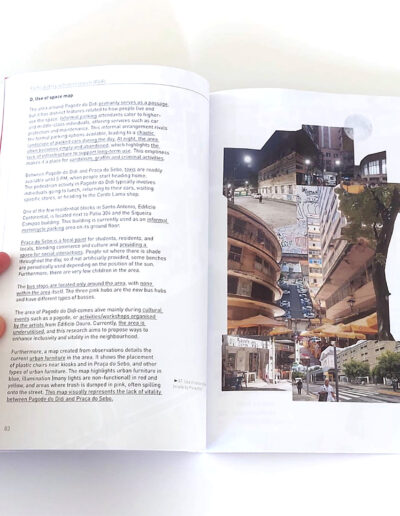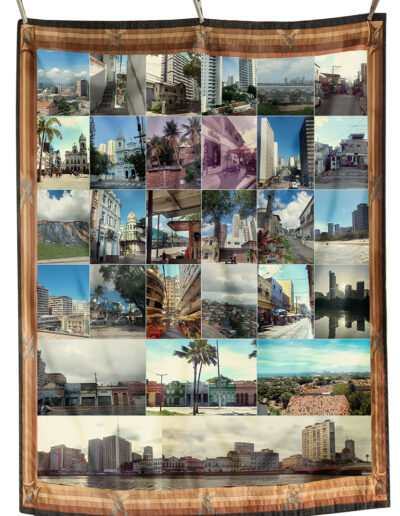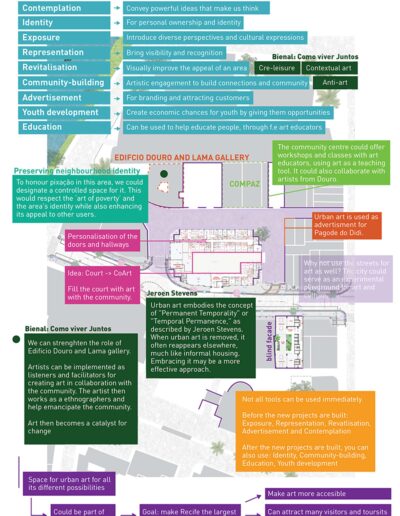Culture as a Catalyst
cédric delbeke
Master Architectuur
2023 — 2024
studio
ISTT
promotoren
Johan de Walsche
Nathan de Feyter
Marleen Goethals
Múcio Jucá
Provocative, surreal image of collected ideas for the future as a result of a third phase of a participatory ‘action week’ together with internal and external actors of the case study area.
Culture as a Catalyst
I’m part of ISTT, the Interdisciplinary Studio for Territories in Transition. For my master’s thesis, I’ve conducted participatory action research in Recife, Brazil, exploring how culture can address disparities and promote an inclusive social mix in the city centre. The gathered insights aim to influence development plans for existing retrofit housing, using culture as a catalyst for change and helping diverse communities coexist and thrive.
Recife shines with culture but is shadowed by deep social and economic inequalities rooted in its history of colonialism, slavery, and rapid urbanisation. This thesis explores how Recife’s vibrant culture can be harnessed to address these disparities and drive social and spatial transformation, focusing on urban, living, and commercial cultures. The city centre, plagued by vacancy and crime, is characterised by a monofunctional landscape of commerce and offices, with few residents. Many people from different classes work here but do not necessarily interact. However, areas like around Pagode do Didi still exhibit cultural vibrancy and potential for revitalisation.
This research aims to integrate gathered insights into the upcoming retrofit housing projects, both social and middle-class, planned by the city. Using a combination of desk research and participatory action research, the study investigates the origins of inequality in Recife, gathers key insights, and explores culture through art. It examines three types of culture—urban, living, and commercial—through field observations, informal conversations, interviews, and participatory activities. These insights are incorporated into development plans, organised into seven key themes: The Dangers of Retrofit, Safe Space, The Power of Urban Art, The Power of Community, Revitalising Public Space, Mixed-Use Development, and a Zoom-In.
Concluding with a visual manifesto, the thesis aims to inspire action toward creating a more inclusive social mix. By placing culture at the core of urban development, the research shows that culture can be a powerful catalyst for transformative change, helping diverse communities coexist and thrive.

